Your HVAC (Heating, Ventilation, and Air Conditioning) system is one of the most important components of your home, providing comfort and air quality throughout the year. But it can also be a significant source of energy waste if not managed properly. Streamlining your HVAC system can save you money, extend the life of your equipment, and make your home more eco-friendly. Here’s a guide for homeowners who want to boost the efficiency of their HVAC system.
1. Regular Maintenance
The first step in streamlining any system is to ensure that all components are functioning at their best. For HVAC systems, routine maintenance can prevent minor issues from escalating into major problems, such as leaks or complete system breakdowns. A professional technician can inspect and clean your HVAC system twice a year, typically in the spring and fall.
This periodic checkup includes cleaning or replacing filters, inspecting ductwork, checking thermostats, and ensuring that the system is functioning at optimal levels. Regular maintenance can improve your system’s efficiency by up to 15%.
2. Upgrading your Thermostat
A programmable or smart thermostat can be a game-changer when it comes to HVAC efficiency. These devices give you precise control over the temperature in your home, and smart thermostats even learn from your behavior to heat or cool your home more efficiently. For instance, they can lower the heating or cooling when you’re away or asleep and crank it up shortly before you arrive home or awake.
Switching to a smart thermostat could save you about 10% a year on heating and cooling costs, according to the U.S. Department of Energy.
3. Proper Insulation and Sealing
Improper insulation and sealing can be the primary cause for energy waste as the heated or cooled air escapes from your home. This leads to your HVAC system working overtime to maintain a consistent indoor temperature.
By insulating your home properly – particularly in the attic and walls – you can keep warm air from escaping during the winter and cold air from escaping during the summer. Moreover, sealing the doors, windows, and any cracks with weatherstripping or caulk can also prevent air leaks.
4. Upgrading HVAC Equipment
If your HVAC system is over 10 years old, it might be time to consider replacing it with an energy-efficient model. Newer models come with improved technology and higher energy-efficiency ratings, leading to significant energy savings in the long run.
When looking for a new system, consider products that have the Energy Star rating. These systems meet strict efficiency guidelines set by the U.S. Environmental Protection Agency and the Department of Energy and can save you up to 20% on heating and cooling costs.
5. Mindful Usage
Lastly, mindful usage of your HVAC system can contribute significantly to its efficiency. This could mean setting the thermostat a few degrees lower in winter or higher in summer, using ceiling fans to spread the cooled or heated air more evenly, and using curtains or blinds to regulate indoor temperature.
Following these tips can streamline your HVAC system, saving both your wallet and the environment. With proper maintenance, smart upgrades, and thoughtful usage, homeowners can transform their HVAC system into a model of efficiency and sustainability.

